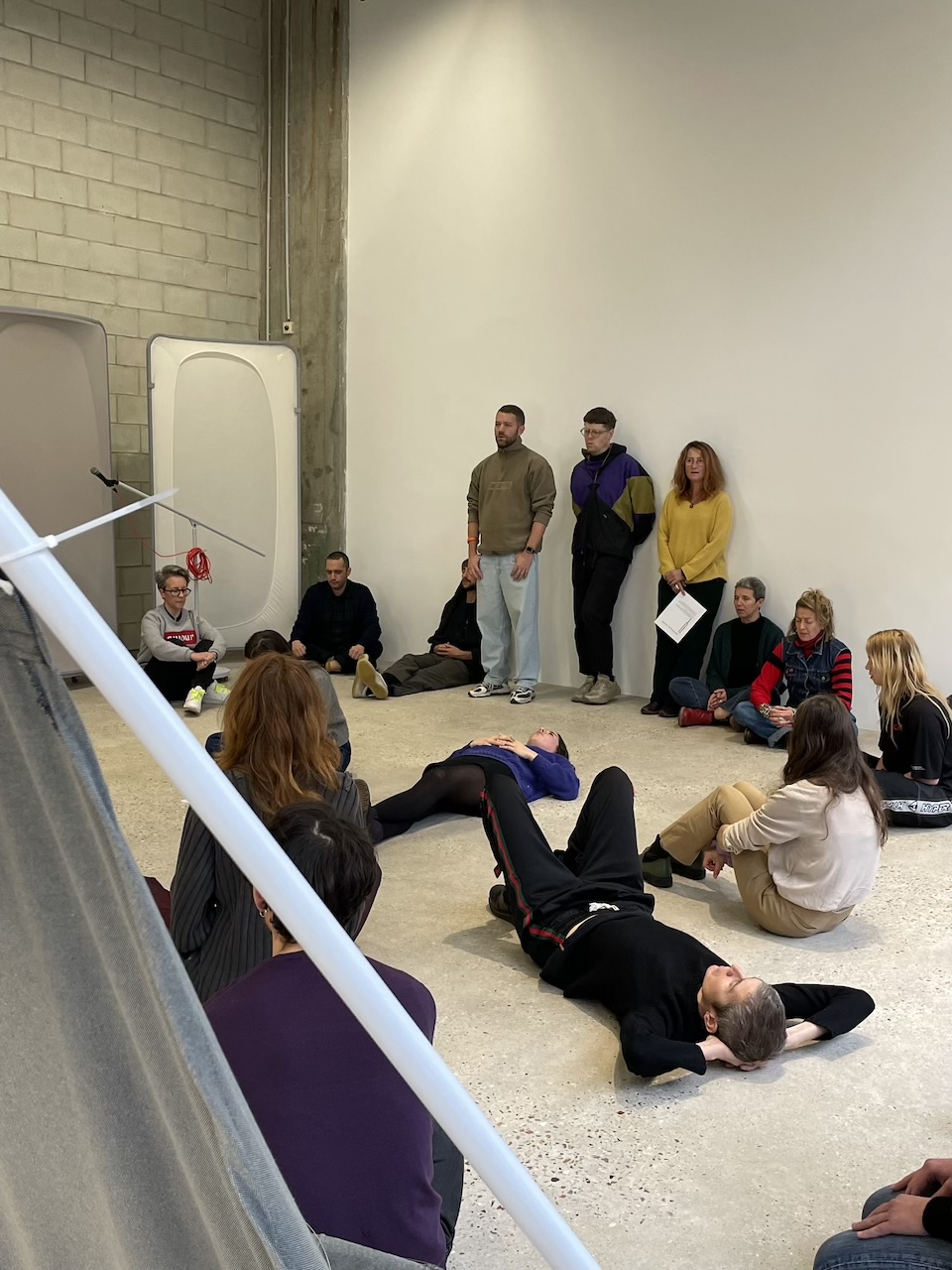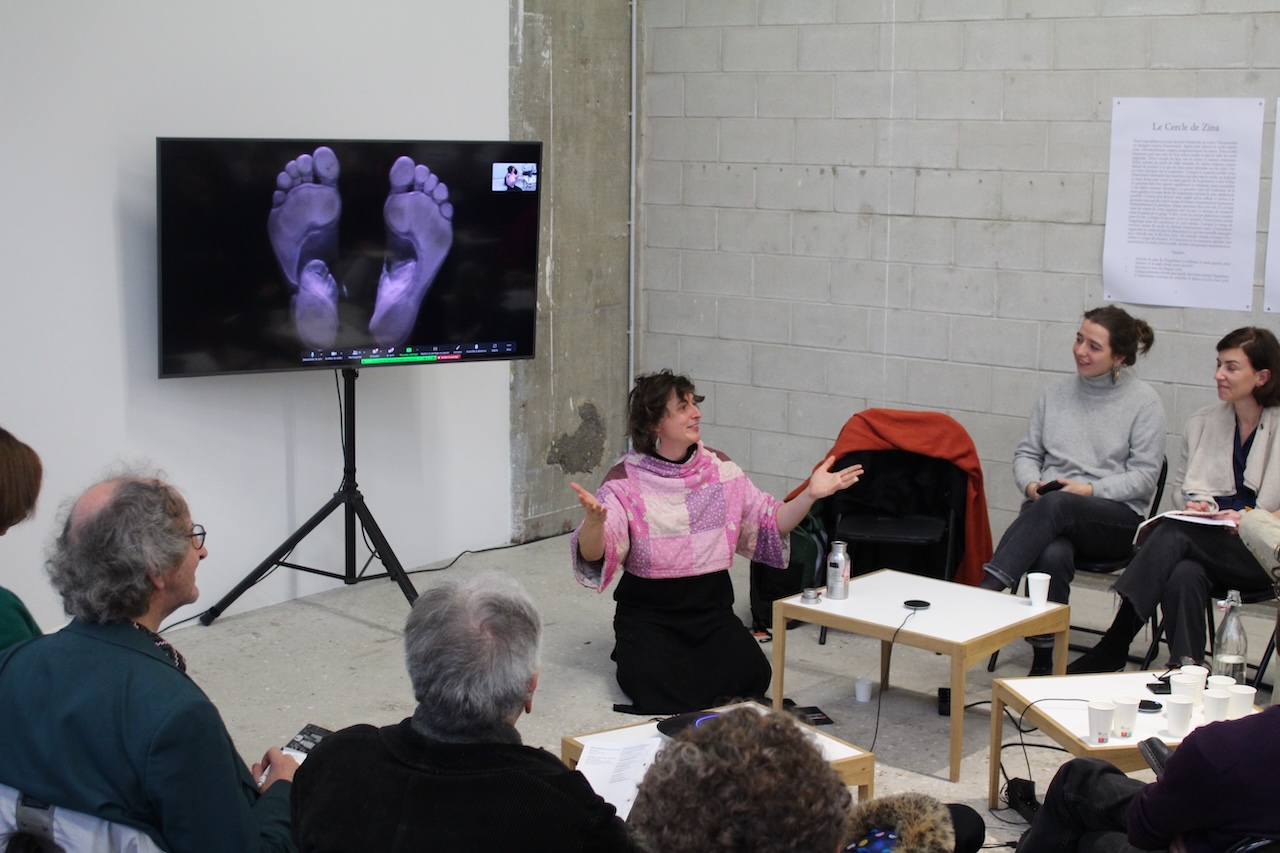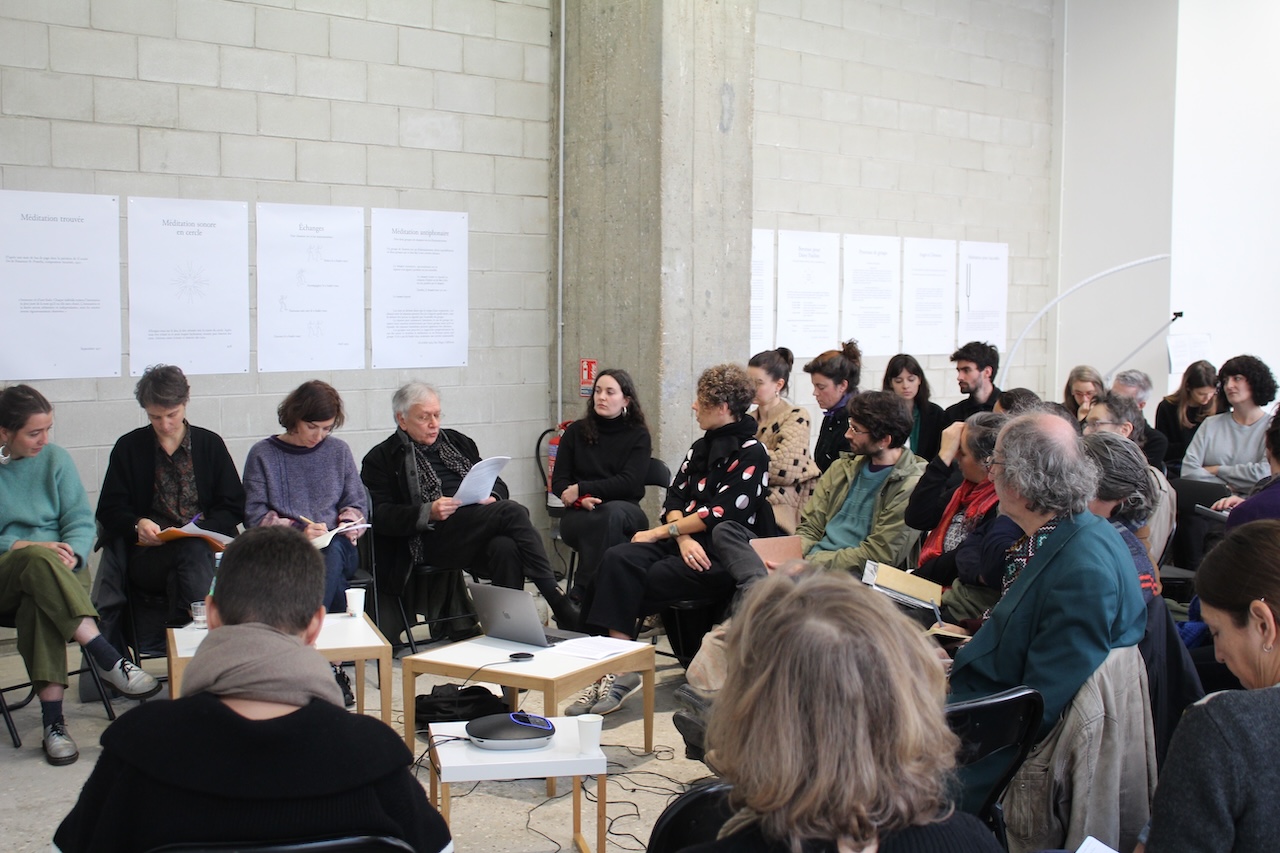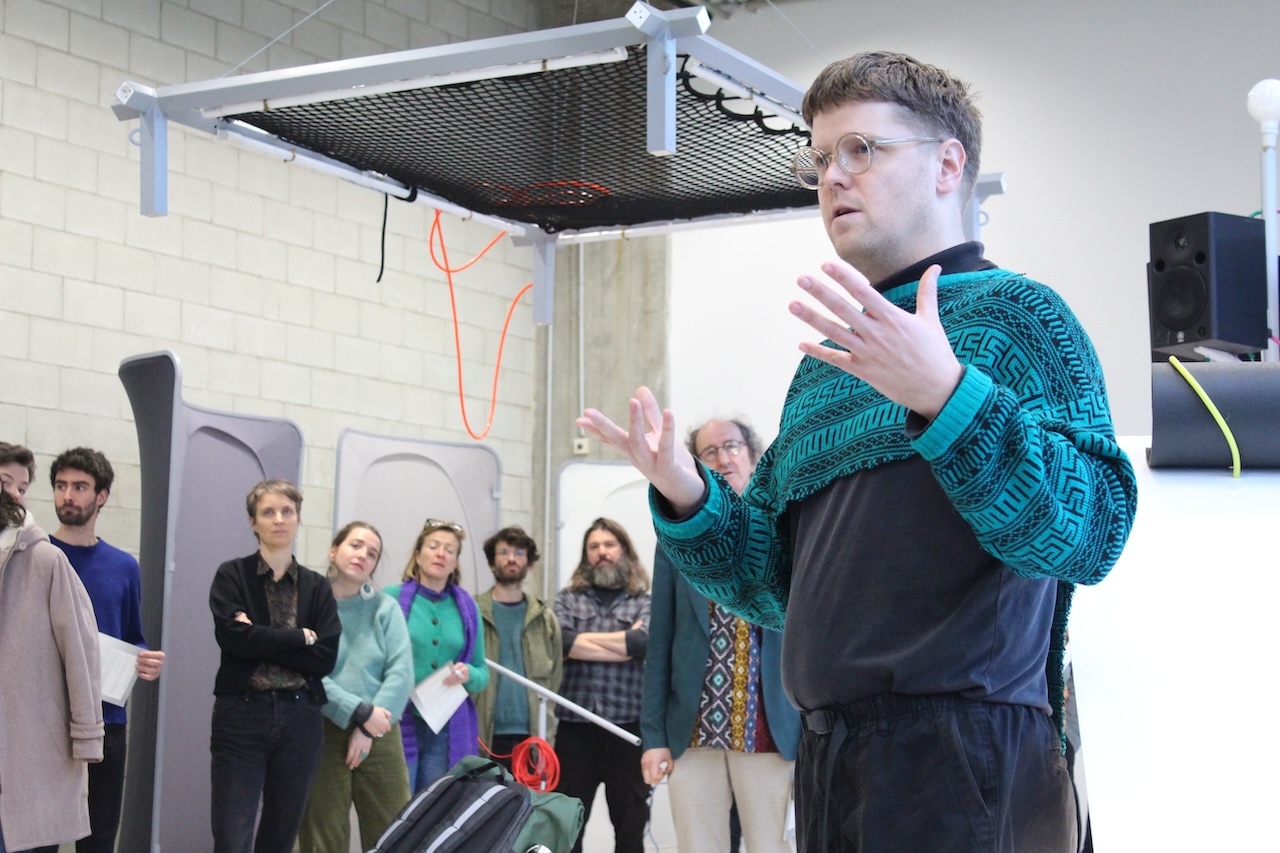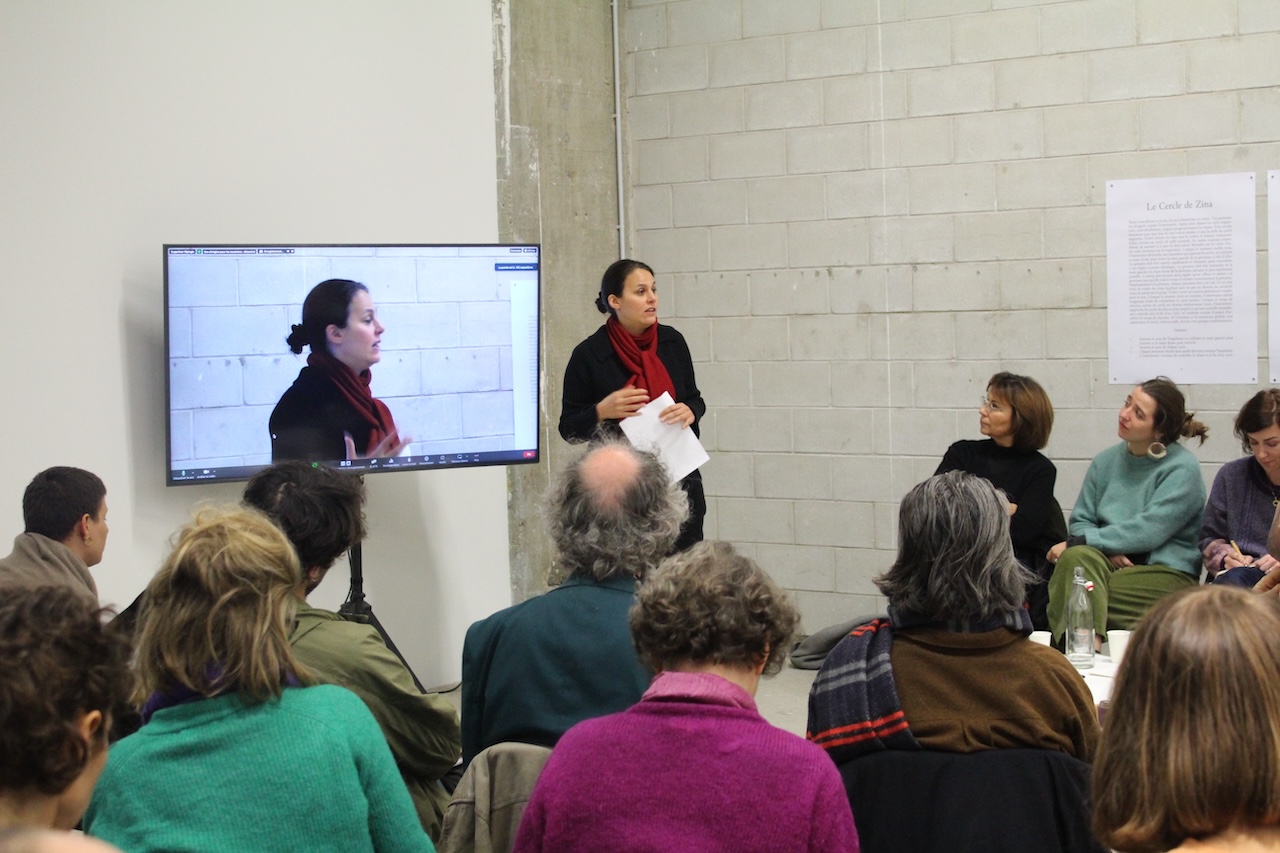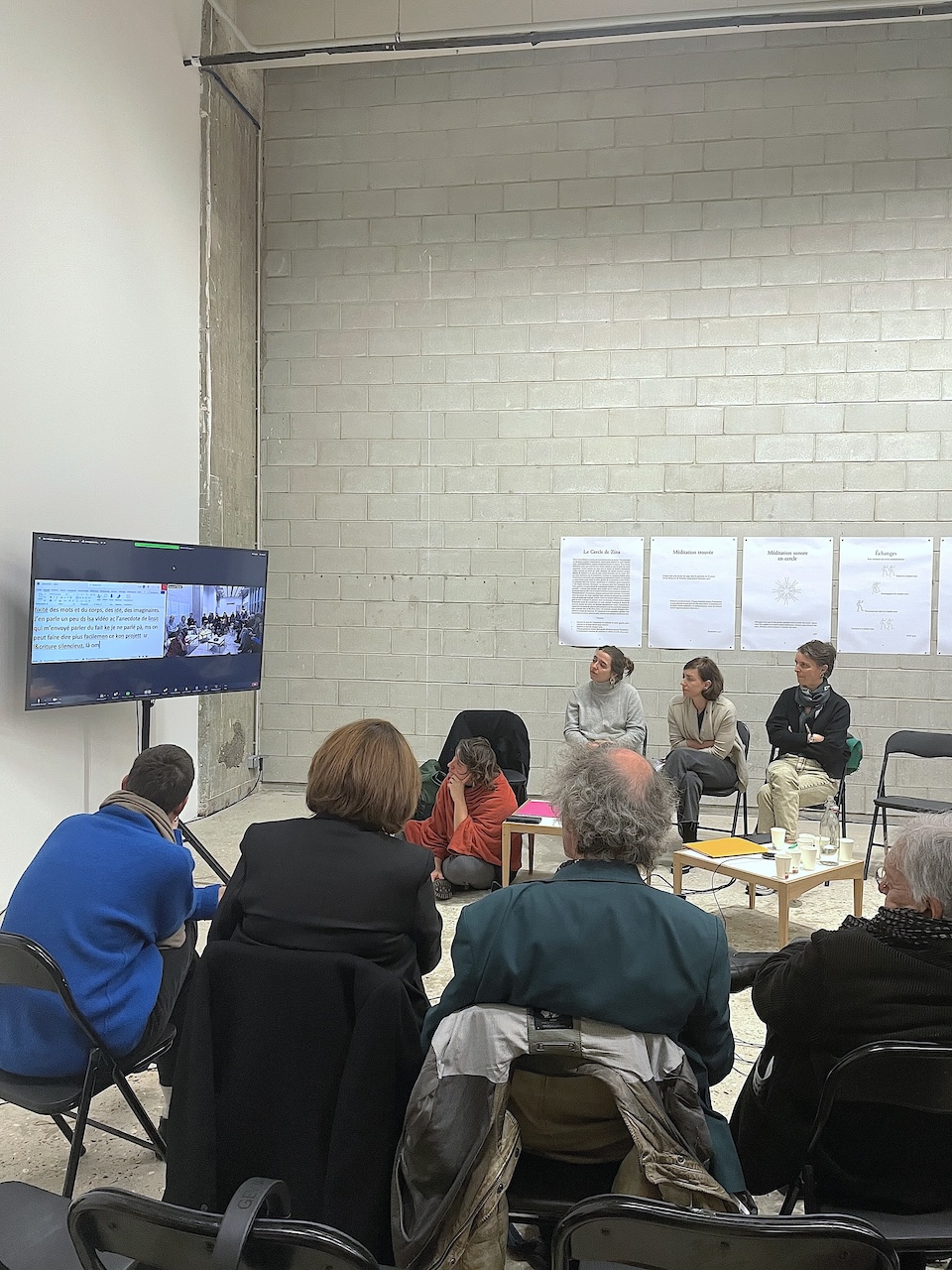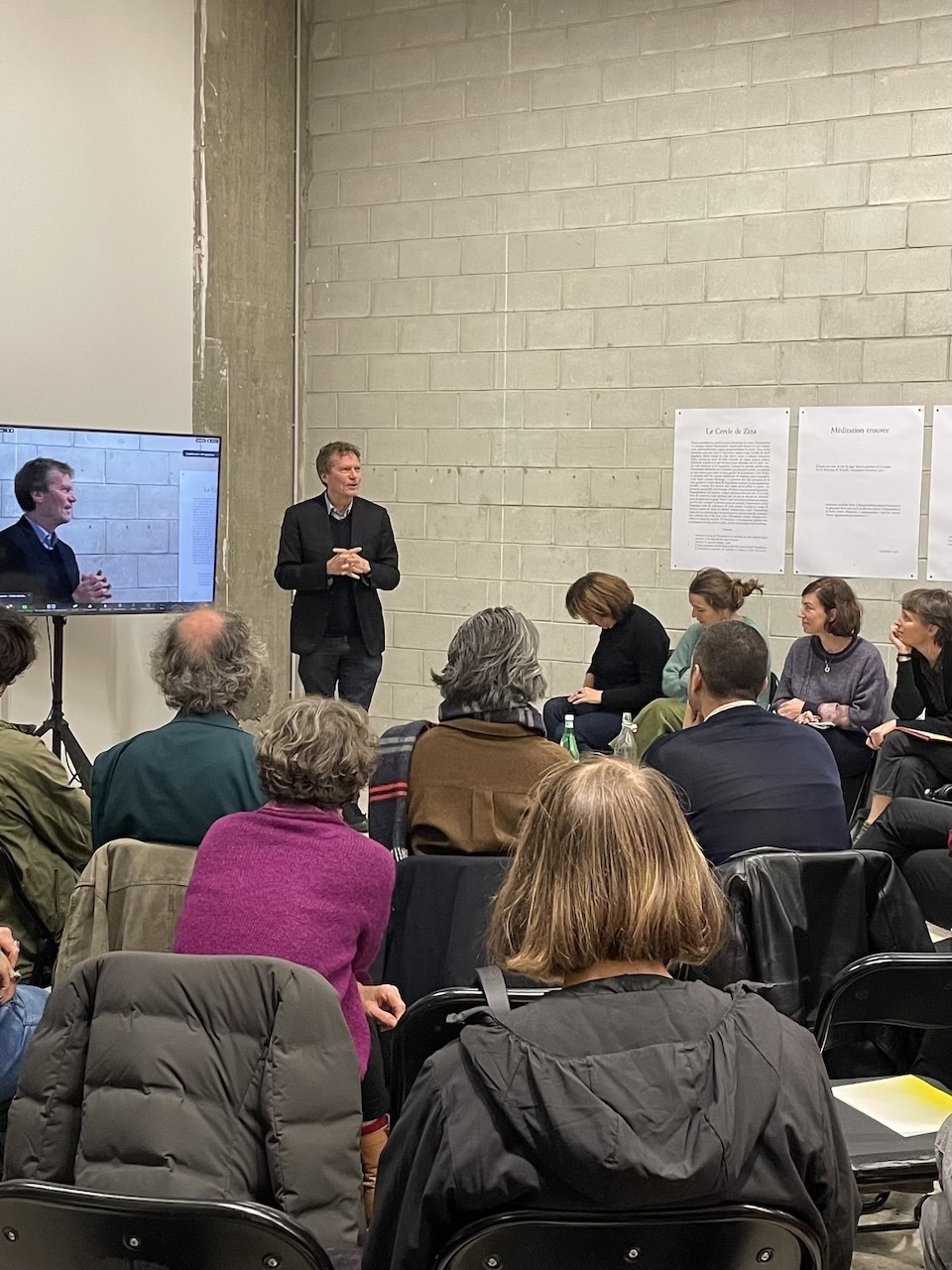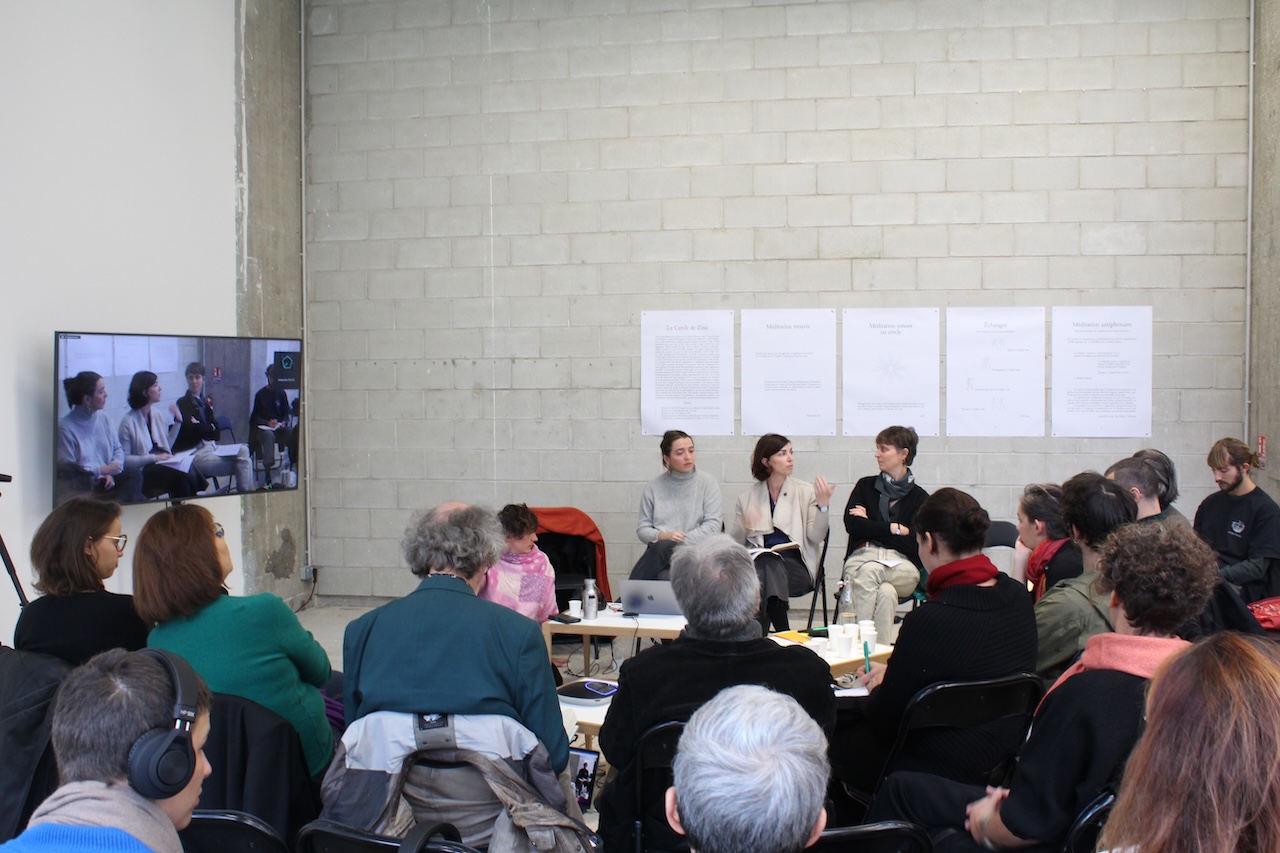
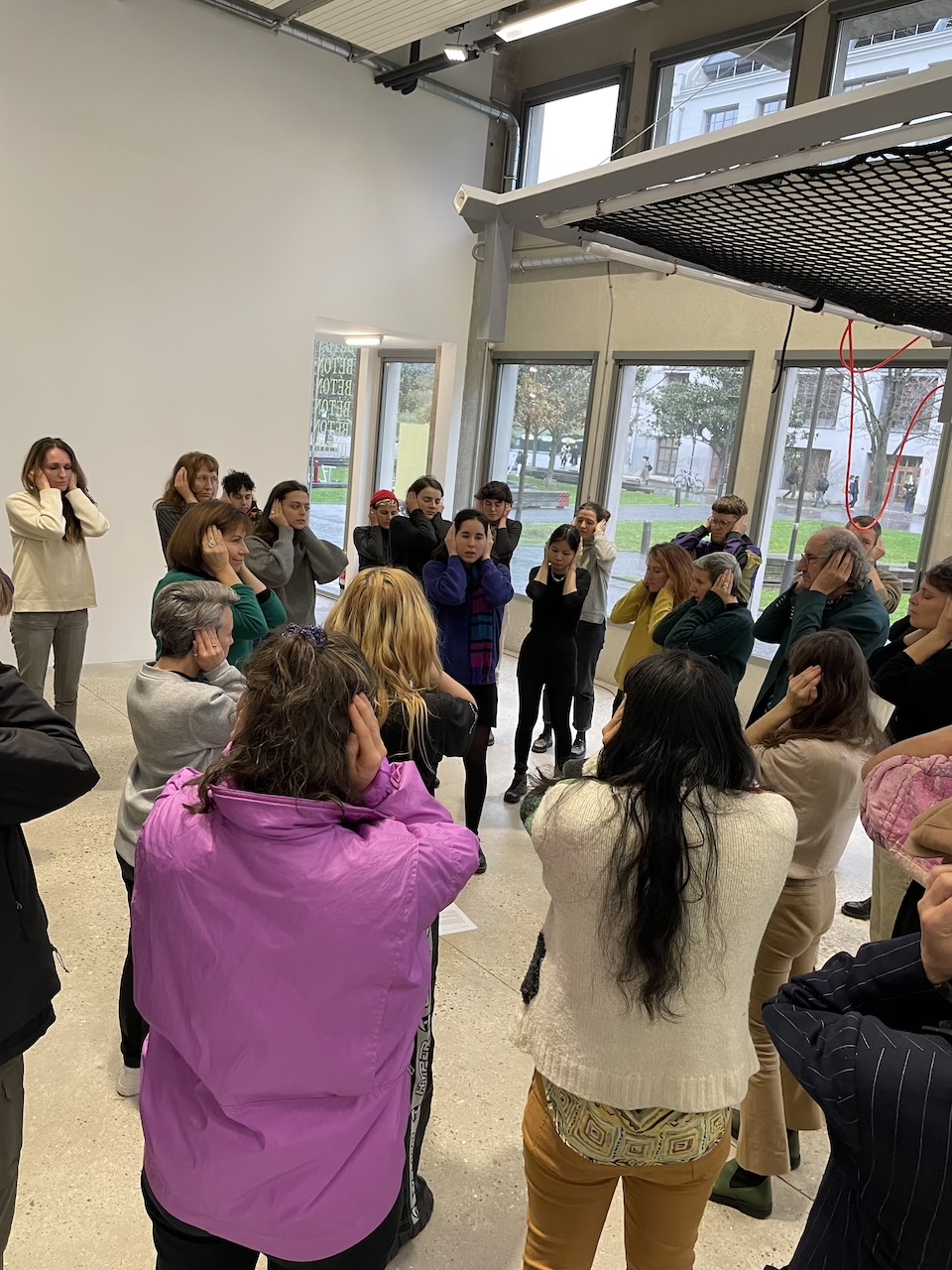
With No Anger, Hartmut Rosa, Christopher Willes, Emma Bigé, Lisbeth Lipari, Roberto Barbanti, Anne Zeitz, Leah Bassel
“What is heard is changed by listening and changes the listener. I call this the listening effect,” wrote Pauline Oliveros. Through the practice of Deep Listening, the American experimental composer has developed a singular conception of listening and its effects. Drawing on her research and following on from the “Un·Tuning Together” exhibition at Bétonsalon, we want to explore the transformative and emancipatory dimension of listening. How can such a practice foster relationships of mutual transformation ? What effects can it have on our relationship with ourselves, with others and with the environment ?
Conceived as a triptych, this “station” approaches the practice of listening as conceived by Oliveros through three complementary modalities : those of an embodied, ecocentric and collective experience.
In the work of the feminist composer, listening is an embodied experience that mobilizes the whole body and transcends the limits of the subject. It can be the basis of an ethical relationship with others, provided we recognize our vulnerabilities and interdependence.
When practiced in relation to the environment, listening makes us feel a form of material continuity, a sense of belonging to the living world that prevents us from considering it as a mere resource. Listening places us in the middle of the world, rather than above it.
In her compositions, Pauline Oliveros situates improvisation at the center of a collective dynamic as an “attentional strategy” that places us at the center of listening to ourselves and to others. This form of attention allows us to experience a social model in which each person’s voice is heard and the individual’s place in the group is constantly negotiated.
Following on from the Laboratory’s work on the “How to inhabit cosmomorphic worlds ?” cycle, Station 24, The Listening Effect, sketches out the possibility of deep listening as a tool for transformation, capable of building a shared world made of interdependencies and resonances.
2pm – 2:25pm
Introduction by Émilie Renard and Maud Jacquin
2:25pm – 2:40pm
Work under study by Pauline Oliveros, Tuning Meditation, 1980
EMBODIED LISTENING
2:40pm – 3:20pm
Emma Bigé (Philosopher, gesture worker, compost for artists) : Écoute-escargot et oreilles tactiles
3:20pm – 4pm
Lisbeth Lipari (PhD and Professor of Communications, Denison University, Ohio, EU) : Communicosmology : Vibration, resonance binding, and other gestalts of interlistening praxis
4pm – 4:30 pm
Discussion
4:30pm – 4:50pm
Break
4:50pm – 5:05pm
No Anger (Artist) : Work under study : Dans ma voix, d’autres voix, 2023, video, 15’
5:05pm – 6pm
Discussion
11am
Guided tour of the exhibition “Earth Ears, listening to the Earth with Pauline Oliveros”, at l’Aperto, Fondation d’entreprise Pernod Ricard, from November 22 to February 20, 2024
2pm – 2:10pm
Introduction by Émilie Renard and Maud Jacquin
LISTENING TO THE ENVIRONMENT
2:10pm – 2:40pm
Anne Zeitz (Associate Professor, Plastic Arts Department, member of the PTAC team, Université Rennes 2) : …like a rumble, from the core of the Earth
2:40pm – 3:10pm
Roberto Barbanti (Professor Emeritus, Plastic Arts Department, Université Paris 8) : Listening to the world
3.10pm – 3.40pm
Exchange
3.40pm – 4pm
Break
LISTENING AS A SOCIAL PRACTICE
4pm – 4:30pm
Christopher Willes (Artist) : Work under study : To Valerie Solanas and Marilyn Monroe in Recognition of their Desperation, Pauline Oliveros, 1970, performance of the work by Christopher Willes and Public Recordings, 2017-2019, sound piece, 20’ (excerpt)
4:30 pm – 5 pm
Leah Bassel (Professor of Political and International Studies, Centre for Trust, Peace and Social Relations, Coventry University, UK) : Listening as Mutual Learning
5:00 pm – 5:30 pm
Hartmut Rosa (Sociologist and philosopher) : “Give Us a Hearing Heart” : The Listening Society and Its Enemies
5:30 pm – 6 pm
Discussions
The Laboratory Space Brain
Launched in 2009 by the artists Ann Veronica Janssens and Nathalie Ergino, the Laboratoire espace cerveau brings together researchers and artists to share their explorations. Transdisciplinary, collective and horizontal, the Laboratoire develops in stages, in the form of “stations.” These mobile exploration units consist of study days and “works under study,” and take place both “in situ” at the IAC and “ex situ” in other locations. From 2016 onwards, the Laboratory Space Brain has aimed to go beyond an anthropocentric vision of the world with the research cycle entitled “How to inhabit cosmomorphic worlds” since 2022. It extends the field of exploration to the organic links that bind humans to the cosmos, reassessing their place within the universe and learning how to reconstruct a shared world, both human and non-human.
In partnership with IAC, Villeurbanne.
